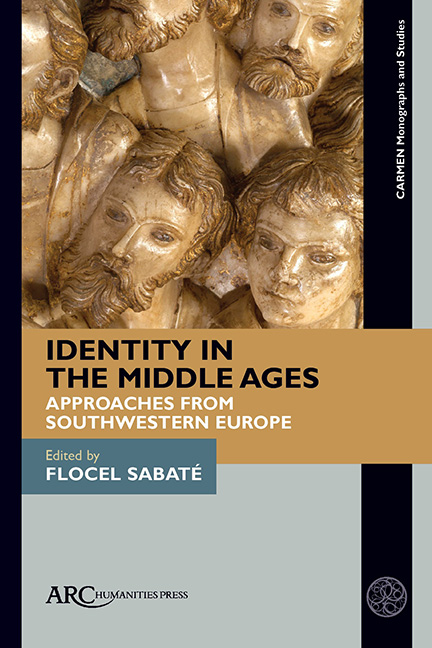Book contents
Chapter 15 - Identity-Making Discourses in the Kingdom of Sardinia and Corsica and the Giudicato of Arborea
Published online by Cambridge University Press: 20 January 2022
Summary
THE GIUDICATO OF Arborea was one of four independent judicates into which the island of Sardinia was divided in the Middle Ages. It occupied the central-west portion of the island, with Cagliari to the south and east, and the Mediterranean Sea to the west. Giudice (Judge) Barison II married into the Catalan nobility in 1157, and two centuries later Sardinia fell to the Crown of Aragon. Arborea outlasted her neighbours, surviving into the fifteenth century. Historical research into the relations between the kingdom of Sardinia and Corsica and the Giudicato of Arborea (from the second half of the thirteenth to the first two decades of the fifteenth century) has existed for more than a century. In this chapter, I focus on historical memory and foundation myths as identity-making discourses in this context and period of time.
Notwithstanding, and although recognizing that the Catalan “layer” is fundamental for understanding modern Sardinia's culture and identity, I have previously highlighted how publications, conferences, and seminars are less and less concerned with the history of Catalan–Aragonese Sardinia. That said, in recent decades scholars have continued to wonder about the meaning and different aspects of the deep Catalan imprint on Sardinia, not only for the Middle Ages, but also for the modern period. After all, the island continued to revolve around that political and cultural orbit, even though it was then part of the larger Crown of Spain.
This chapter applies social science methodo logies to the analysis of Sardo-Catalan relations. This is particularly important for the period between 1297—the founding date of the Regnum Sardiniae et Corsica —and 1420, when the Sardinian Giudicato definitively fell to the kings of Aragon. These political changes affected issues of identity then and later.
Such methodologies are also needed due to the paucity of medieval sources—public and/or private—produced in the island, which cannot counterbalance the wealth of documents elsewhere, mainly in Iberia. The Arxiu de la Corona d’Aragó alone holds a wide range of records, parchments, diplomas, and charters concerning thirteenth- to fifteenth-century Sardinia, not to mention other archives in Barcelona and in other territories formerly under the Crown of Aragon. In addition, we have many sources from the Italian peninsula.
- Type
- Chapter
- Information
- Identity in the Middle AgesApproaches from Southwestern Europe, pp. 309 - 328Publisher: Amsterdam University PressPrint publication year: 2021



